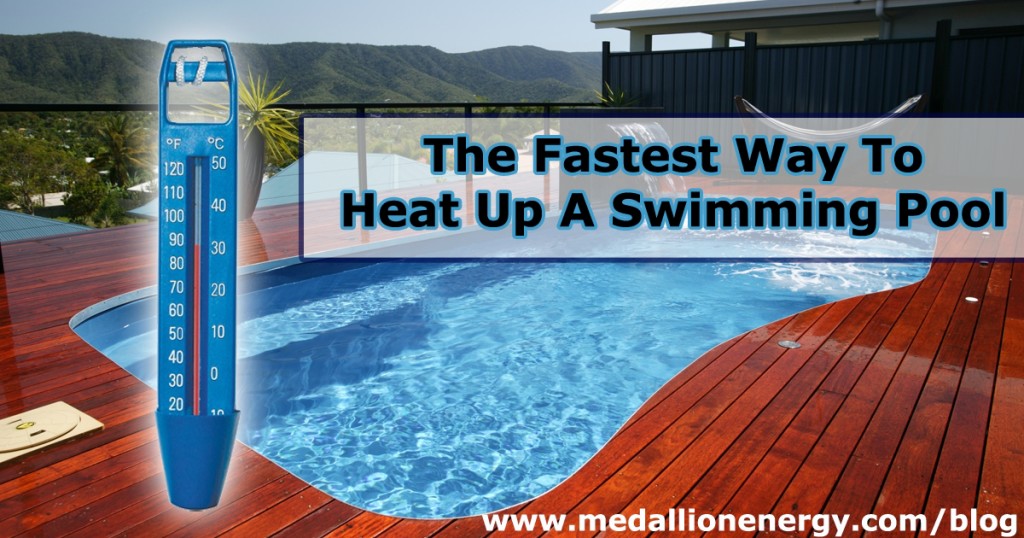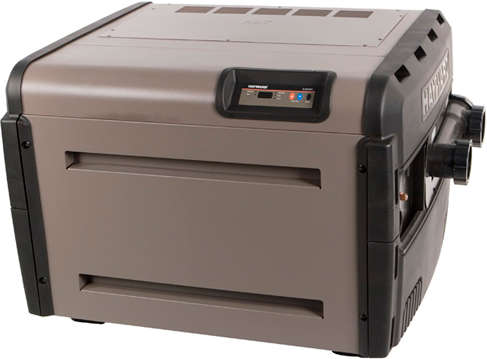There’s nothing quite as relaxing as the tender, warm embrace of heated pool water. On the other hand, there’s nothing worse than being subjected to an unheated pool on a chilly day.
As we all know, a sheer force of will isn’t enough to heat up a swimming pool. Pool heating is a process that although rewarding, takes time and patience. But when the sun is blazing and the crystal clear waters are calling your name, patience isn’t on your mind. You want to jump in, NOW.
This common struggle creates a few important questions in the minds of pool owners:
What’s the fastest way to heat up a swimming pool? What type of pool heater heats up water the fastest?
What type of pool heaters heat up water the fastest?
How can I speed up the pool heating process?
In this post, we answer all those questions in more. So keep reading and discover the fastest way to heat your pool.
The Fast Way To Heat Up Your Swimming Pool
Gas Heaters, the Ferrari of Pool Heaters
You’re probably wondering why we just compared a pool heater to a car — it’s all in the analogy.
When it comes to heating your pool, gas heaters are the fastest. And just like Ferraris, gas heaters offer unrivaled speed and performance.
For reference, consider this: while other pool heaters take a day to increase water temperature by 3 degrees, gas heaters only take an hour.
But naturally, this level of speed and performance comes at a cost.
Remember how we were just comparing gas heaters to Ferraris? Well, surprise surprise, gas heaters are notorious for being gas guzzlers.
And on top of the fact that gas itself is pricey, gas heaters also have one of the lowest COPs of all pool heating options.
Bottom line: they’re fast but expensive to operate
So essentially, it comes down to convenience vs cost. This is why most gas heaters are used for small spas, or as backup units to more cost effective and energy efficient heating options, like pool heat pumps and solar pool heaters.
[Dealing with gas pool heater problems? Check out: How To Troubleshoot a Gas Pool Heater]
Honorable Mention: Electric Resistance Pool Heaters
Although they’re not as fast as gas heaters, electric resistance pool heaters still provide quick on-demand heating in a pinch. This is because they work similar to an electric stove, using a heating element to generate their heat as opposed to gas. But unfortunately, when it comes to heating your pool, an electric resistance pool heater is the least cost effective.
[Want to learn more? Here’s how electric resistance heaters work]
How to heat up a swimming pool faster
Aside from your pool heater, there are few other factors that control how fast your water heats up. These factors have more to do with how heat is distributed and stored as opposed to how it’s generated.
Lock in that heat with a solar cover
In an older post, we discussed how using a solar cover makes your pool more energy efficient. Although they come in all shapes, colors, and sizes, solar covers serve a universal function: minimizing heat loss.
How?
By creating a barrier that locks in heat and reduces evaporation.
A pool heater can heat up your pool, but it can’t retain all of the heat it generates. This is why solar covers are so useful.
Solar covers act as a protective lid for your pool, keeping your water warm while making your heater more effective.
[Want to lower pool heating costs? Check out these cheap ways to heat your pool]
Optimal heat distribution with floor return lines
Image via SwimUniversity
Your return lines are where all the water flowing out of your pool heater enters. Typically, they’re either located close to the surface or near the bottom of the pool. But since heat naturally rises, the latter is far more advantageous.
Floor return lines distribute heated water to the coldest part of the pool, the bottom. Since the source of the heat lies at the bottom of the “container”, there’s way less opportunity for cold spots to form as opposed to traditional surface return lines.
The result? Drastically more effective heat distribution
Closing note
Using a gas heater is, no doubt, the fastest way to heat up a swimming pool. But maybe you’re not ready to make a purchase yet.
Taking in the additional tips mentioned in this post, it’s important to consider what matters to you most as a pool owner. While some pool heating options offer speed and performance, others focus on cost-effectiveness and energy efficiency.
Needless to say, making the best choice for your needs depends on everything from your budget and location to your swimming and pool care habits.
That’s a lot to consider. Hence why we created this post: How To Choose The Best Pool Heater
[In the process of opening your pool? Avoid these 21 Pool Opening Mistakes]




